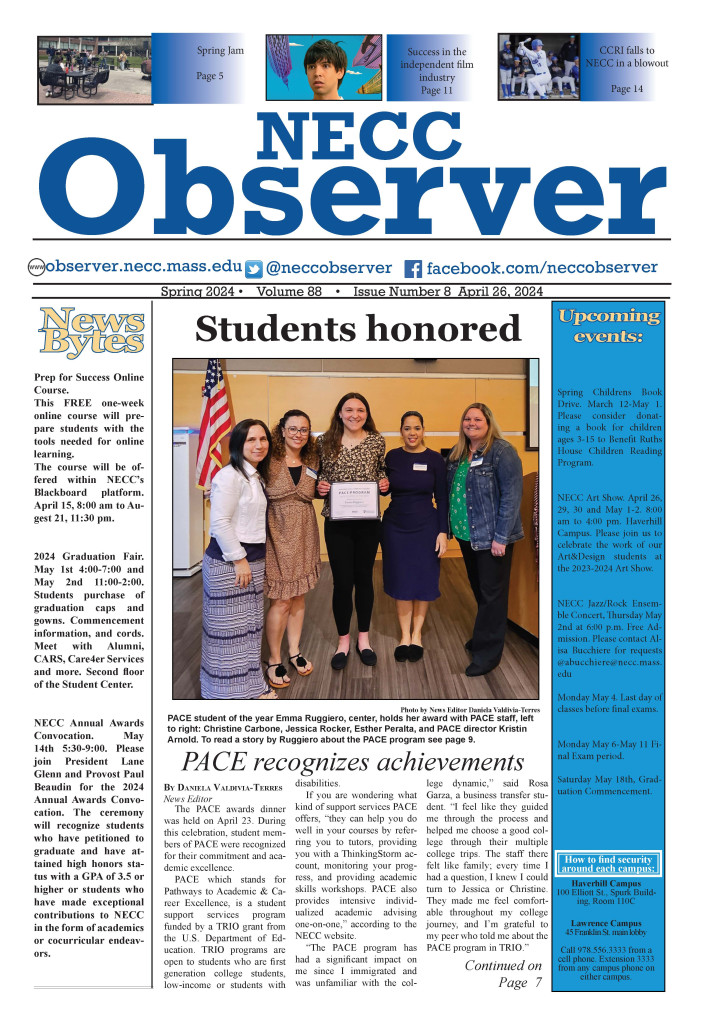The Centers for Disease Control and Prevention (CDC) says, “Many of us are facing challenges that can be stressful, overwhelming, and cause strong emotions in adults and children. Public health actions, such as social distancing, are necessary to reduce the spread of COVID-19, but they can make us feel isolated and lonely and can increase stress and anxiety.”
This includes NECC students working hard to cope with the stress of the pandemic and online learning.
Haverhill High School senior and NECC Dual-Enrollment student Chelsea Daigle says, “It’s [the pandemic] brought on lots of stress to the household. I’ve had to take on more responsibilities and trying to take on a parental relationship with my younger brother because my parents are working so hard.”
For some students like communications major Owen Devlin, the effects of the pandemic can be best described as, “Highs and lows. I do miss seeing people’s faces, I miss the outside interaction,” he says.
Communications major Lauren McCrimmon echoed Devlin’s sentiments, saying, “Not being able to see my friends has definitely had its impact on me emotionally.”
Pursuing a college degree 100 percent remotely has been a new experience for most.
“It’s been a challenge,” says Devlin, “I’ve been able to do all of my work and handing my work in, but I really miss the classroom interaction with my peers and professors.”
“To have your work environment be your social environment and your de-stress environment can be challenging.” Says Daigle, “It’s draining, it’s tiring for your brain to have to jump into different modes all in one sitting throughout the day.”
On the other hand, students like McCrimmon have actually found it easier to work from home than from the classroom, stating, “I like that I can get more done by myself. I’m able to focus without distractions.”
Even with all the stressors of quarantine, these students are still using different coping mechanisms to guide them through these complicated times.
Daigle offered helpful advice for managing your online workload, including forcing yourself to have breaks, having shorter periods of learning or even just buying a thousand-piece puzzle to focus on in-between assignments.
Being confined to one space with the same people for so long can strain interpersonal relationships, but only if we allow them to be strained. The key is connecting with one another. “Think about the ones you love. Even if you might not get along, try to connect with them,” says Devlin.
McCrimmon and Devlin both suggested nature walks, whether it be to walk your dog or to soak up some sunlight.
No matter what emotional effects of quarantine you might be feeling, it is important to remember you are not alone and help is always available.
National Suicide Prevention Lifeline: 1-800-273-TALK (8255)
National Domestic Violence Hotline: 1-800-799-7233 or text LOVEIS to 22522
National Child Abuse Hotline: 1-800-4AChild (1-800-422-4453) or text 1-800-422-4453
National Sexual Assault Hotline: 1-800-656-HOPE (4673) or Online Chat
Veteran’s Crisis Line: 1-800-273-TALK (8255) or Crisis Chat or text 8388255
Disaster Distress Helpline: Call or text 1-800-985-5990

